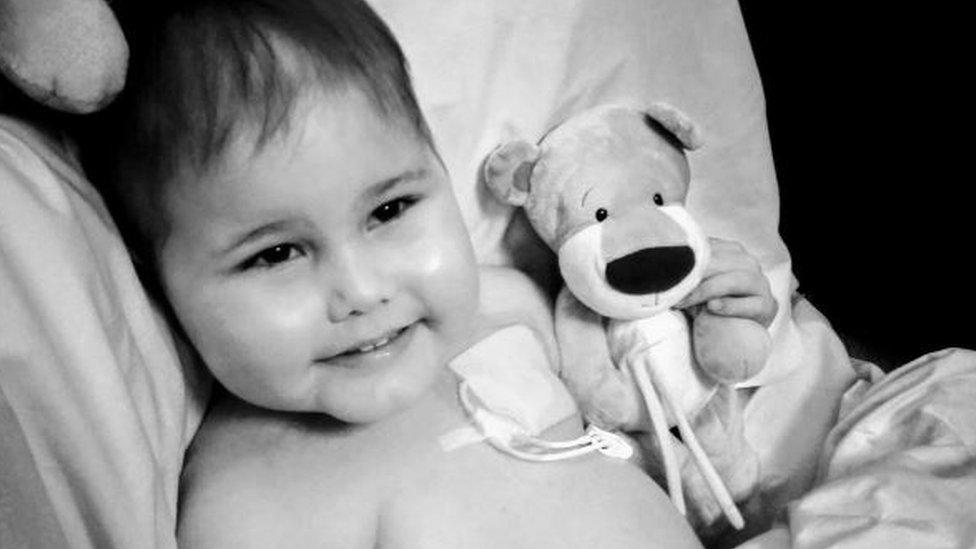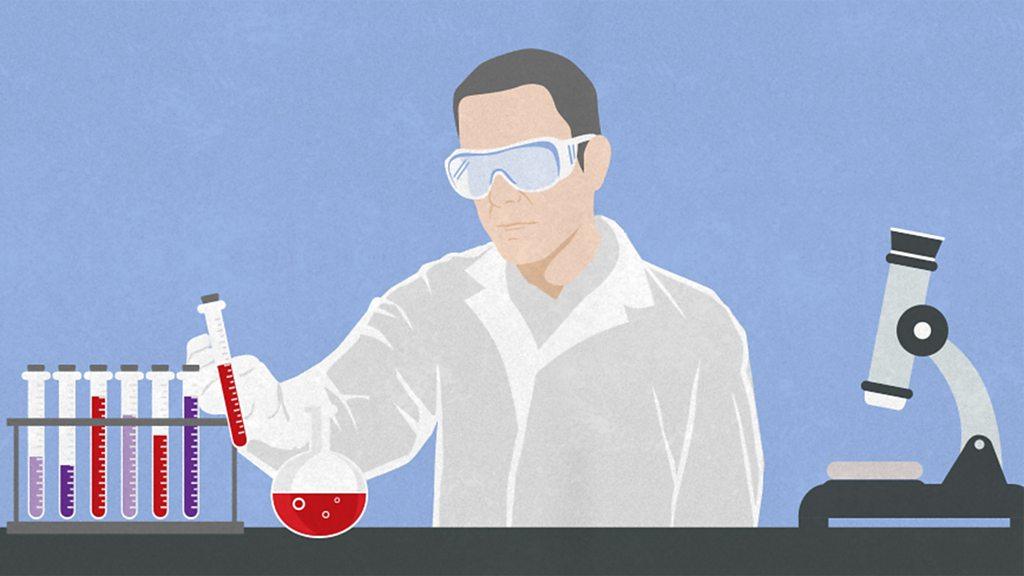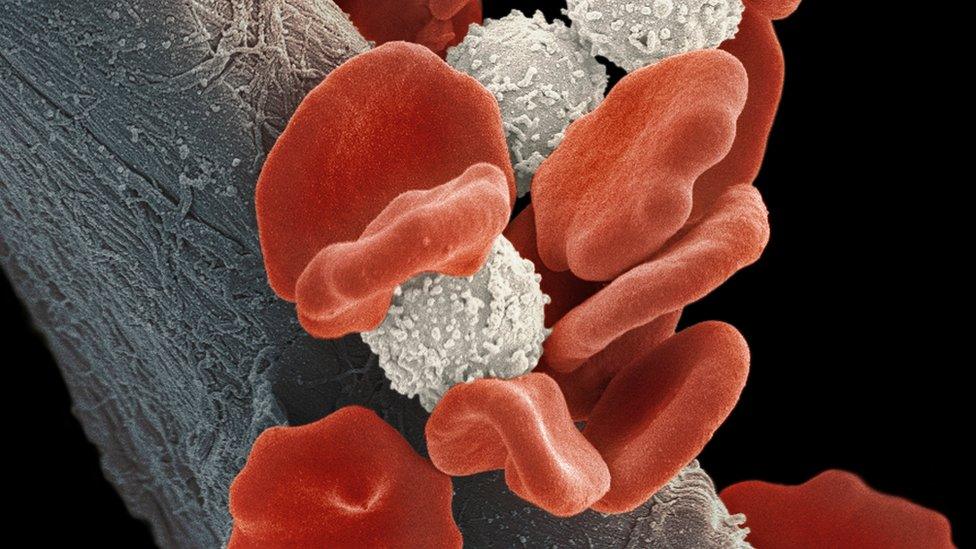Leukaemia test 'could change how cancer is treated'
- Published
- comments

The new test can estimate how quickly the cancer will develop
A test that can quickly predict how people with leukaemia will respond to chemotherapy could change how some cancers are treated, researchers say.
Scientists at Cardiff University said the accurate test could help guide doctors' decisions on which drugs to give patients.
They said it could also improve the care given to other patients, like those with myeloma and breast cancer.
Leukaemia is a blood cancer that can affect the immune system.
The most common type, chronic lymphocytic leukaemia (CLL) is a slowly developing cancer in which patients produce mutated versions of white blood cells that build up in the blood, bone marrow and lymph nodes and crowd out healthy blood cells.
CLL progresses at different rates in different people and never progresses at all in a third of patients.
Chronic Lymphocytic Leukaemia explained
Until now there has been no accurate test that can be used to indicate if and how fast individual patients' cancer will develop.
The results of the new test can be ready in a day.
Prof Duncan Baird, one of the researchers behind it, said: "Not all patients benefit equally from chemotherapy and this test is the only one available that can accurately predict how patients are likely to respond.
"Our research provides strong evidence that a significant number of patients should be receiving more appropriate treatments."
The research, which was funded by the blood cancer research charity Bloodwise, has been published in the journal Leukemia, external.
Dr Alasdair Rankin, director of research at Bloodwise, said: "People with CLL can experience great anxiety and uncertainty about how their cancer will progress.
"This test could give people the peace of mind that they will receive the most effective treatment possible if it does. It may even allow some people to be told that their cancer is unlikely to progress."
- Published26 February 2019

- Published31 January 2019
- Published15 February 2019

- Published13 February 2019

- Published5 February 2018

- Published5 September 2018
